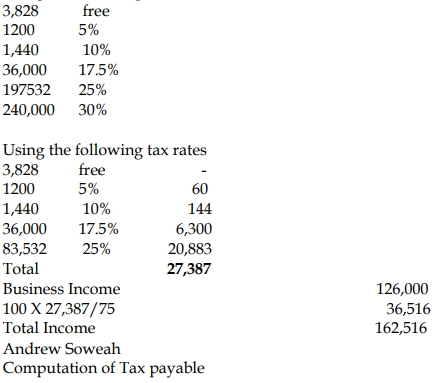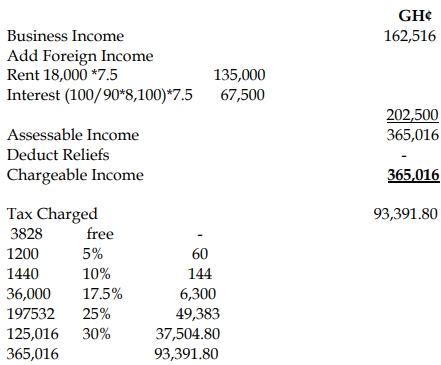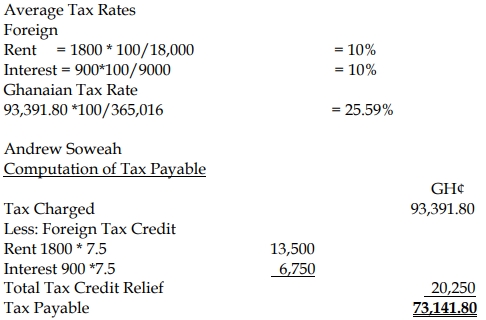- 6 Marks
Question
Tax planning is the analysis of a financial situation or plan from a tax perspective. The purpose of tax planning is to ensure tax efficiency, with the elements of the financial plan working together in the most tax-efficient manner possible.
Required:
Briefly explain the following terms with respect to tax planning:
i) Tax holiday
ii) Tax exemptions
iii) Tax relief
iv) Tax rebates/refund
(6 marks)
Answer
i) Tax Holiday:
A tax holiday is a temporary reduction or elimination of a tax. Tax holidays may be granted by the government at national, regional, or local levels to attract foreign direct investment or stimulate growth in selected industries.
(1.5 marks)
ii) Tax Exemptions:
Tax exemption refers to a statutory exception that removes particular revenue items or classes of people from taxation. It may offer complete relief from tax, tax at a reduced rate, or tax on only a portion of the items subject to tax.
(1.5 marks)
iii) Tax Relief:
A tax relief is a deductible allowance approved by law to reduce taxable income and lessen the tax burden. Personal circumstances are always considered when allowing tax reliefs.
(1.5 marks)
iv) Tax Rebate/Refund:
A tax rebate is a partial refund of taxes already paid, or it may be an amount deducted from the taxes owed. It often involves the government sending back a portion of the taxes already paid by the taxpayer.
(1.5 marks)
- Tags: Tax Exemptions, Tax Holiday, Tax Planning, Tax rebates, Tax Relief
- Level: Level 3
- Topic: Tax planning
- Series: MAY 2018
- Uploader: Cheoli



